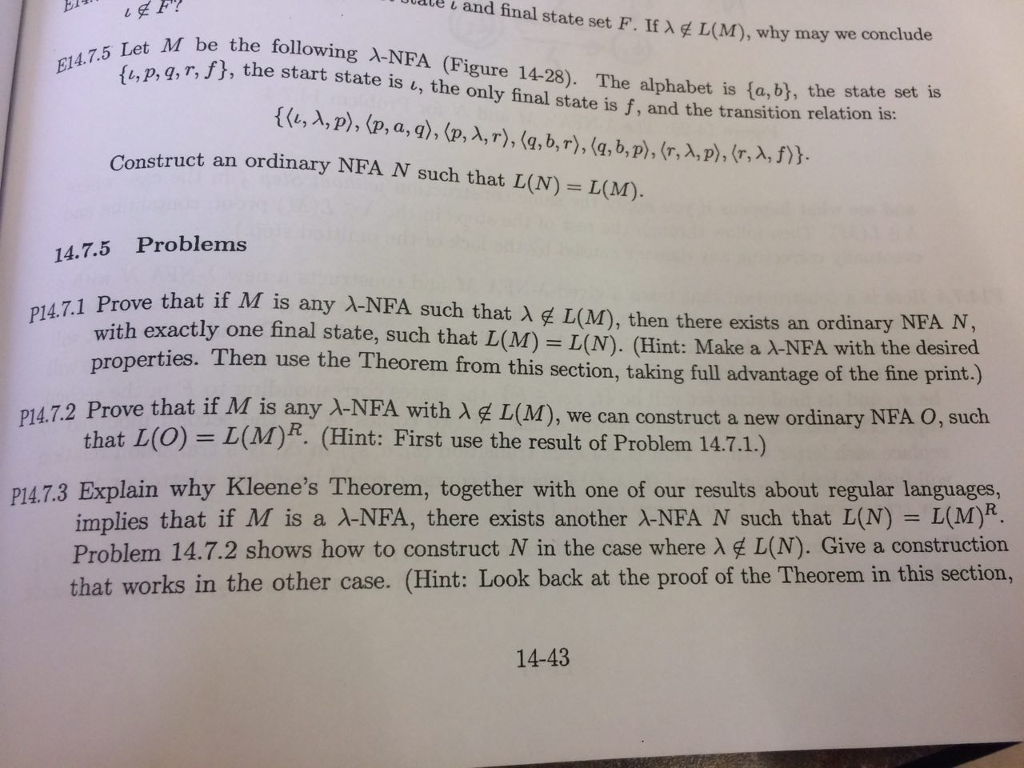Question: Please do P14.7.2 cate 1 and final state set F. If ? L(M ), why may we conclude t M be the following A-NFA (Figure
Please do P14.7.2

cate 1 and final state set F. If ? L(M ), why may we conclude t M be the following A-NFA (Figure 14-28). The alphabet is (a, b) 4.7 r, f), the start state is t, the only final state is f, and the transition tea Let , the state set is ct an ordinary NFA N such that L(N) = L(M). 14.7.5 Problems Prove that if M is any ?-NFA such that ? L(M), then there exists an ordinary NFA N, with exactly one final state, such that L(M) L(N) (Hint: Make a ? NFA with the desired operties. Then use the Theorem from this section, taking full advantage of the fine print. pr p47.2 Prove that if M is any A-NFA with A L(M), we can construct a new ordinary NFA O, suclh that L(O) = L(M)R. (Hint: First use the result of Problem 14.71.) P14.7.3 Explain why Kleene's Theorem, together with one of our results about regular languages, implies that if M is a ?-NFA, there exists another ?-NFA N such that L(N) = L(M)R Problem 14.7.2 shows how to construct N in the case where ? L(N). Give a construction that works in the other case. (Hint: Look back at the proof of the Theorem in this section, 14-43
Step by Step Solution
There are 3 Steps involved in it

Get step-by-step solutions from verified subject matter experts


